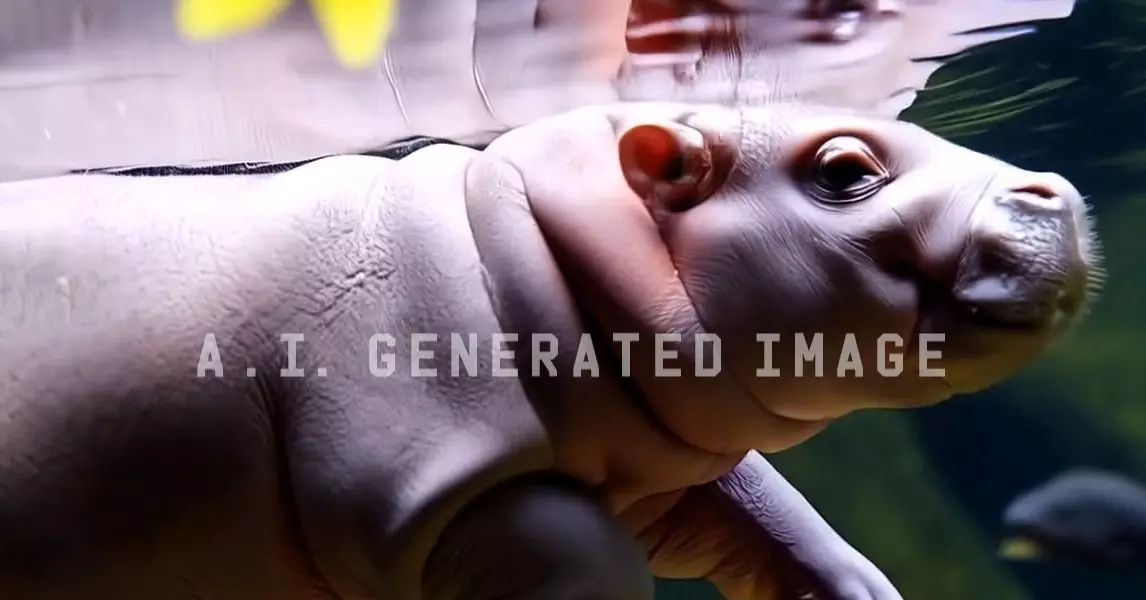Meta’s latest foray into artificial intelligence, the Movie Gen model, illustrates a significant leap in media generation technology that could reshape video and audio content creation. Announced shortly after the Meta Connect event, Movie Gen claims to produce realistic audiovisual clips, showcasing a new era of creativity and manipulation. Despite its not-yet-available status for public use, the implications of its functionalities are profound, warranting a detailed examination.
Movie Gen is designed to go beyond traditional video generation by offering targeted editing features. Unlike simpler models that merely convert text inputs into video, Movie Gen enables users to make nuanced modifications to existing footage. This includes adding objects to scenes, altering appearances, and adjusting other visual elements. For instance, one of the promotional clips showcased a woman wearing a VR headset, whose visuals could be transformed to make it appear as though she donned steampunk binoculars. Such capabilities indicate that Movie Gen is not just a tool for creation but a platform for precision editing that could be instrumental in film production and content creation.
Furthermore, the AI model generates accompanying audio snippets that enhance the realism of its video outputs. Sounds of nature, vehicles, and environmental sounds were integrated seamlessly with visuals, exemplifying the model’s holistic approach to media generation. This attention to auditory detail marks a notable difference from prior AI models that primarily focused on visual output. By creating high-definition videos up to 16 seconds long, Movie Gen positions itself as a serious contender in the competitive landscape of media generation tools.
With 30 billion parameters attributed to its video functionality and 13 billion to its audio counterpart, Movie Gen exhibits a rigidity in design that speaks to its power. By comparison, Meta’s own Llama model possesses a staggering 405 billion parameters, showcasing the scale and complexity of the training protocols that underlie such technologies. The parameters essentially dictate a model’s capabilities, underscoring Movie Gen’s potential for both high-quality production and intricate edits.
Yet, despite these impressive figures, questions remain regarding the datasets from which Movie Gen has been trained. Meta’s information was abstract, merely stating the utilization of licensed and publicly available data, which prompts deeper concerns regarding ethical resource use in AI development. The debate surrounding data sourcing is particularly relevant as transparency remains a significant issue within the generative AI sphere. Therefore, the ambiguity surrounding Movie Gen’s training data might raise caution among potential users and stakeholders.
While it’s evident that tools like Movie Gen could revolutionize content creation in various sectors, the timeline for public availability remains uncertain. Meta’s announcement leaves much to speculation—phrasing such as “potential future release” does not provide concrete expectations for consumers eager to leverage AI technologies. Notably, after OpenAI’s announcement of its own AI video model, Sora, which also remains inaccessible, future developments in this realm may be hindered by market readiness and public safety concerns.
As we anticipate the market integration of Movie Gen into Meta’s platforms like Facebook, Instagram, and WhatsApp, it is clear that this technology could enhance user-generated content. Such tools promise greater creativity for everyday users, much like the existing “ElfYourself” appeals to fun and personalization but with a much deeper interactive layer.
Meta is not the only player in the generative AI field; its competitors, such as Google with its Veo model, are similarly exploring the intricate fusion of video and AI. However, what sets Movie Gen apart may not just be its functional capabilities but the extensive ecosystem of Meta’s social media platforms, prompting early adoption among millions poised to experiment with this technology. Meanwhile, smaller companies like Runway and Pika are already offering peek-ins at AI capabilities, stirring excitement and experimentation in available niches.
Meta’s Movie Gen represents a pivotal moment in the convergence of AI and media creation, with its advanced editing features and rich audio-visual outputs standing to disrupt traditional methods of video production. The ethical quandaries surrounding its training data and the uncertainties of its release only add layers of complexity to its promising narrative. As technology evolves, the call for balanced innovation and ethical transparency in AI development remains vital to navigate the future implications that such powerful tools bring to society.

